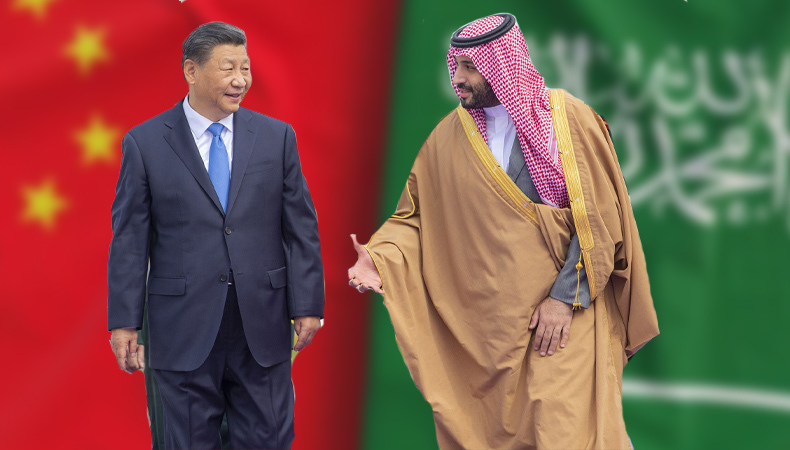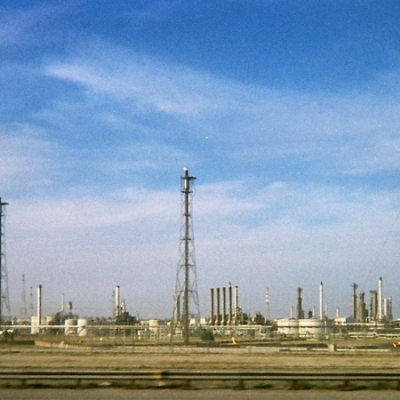Arab-China Investment and Manufacturing Ties Set to Expand After Riyadh Event

The recent high-profile event in Riyadh has created the groundwork for a considerable increase in Arab-China investment and industrial cooperation. This article examines the consequences of this event, the possibility for expanded economic cooperation, and the influence on trade, investment, and industrial partnership for both Arab countries and China.
Also Read – 10th Arab-China Business Conference Concludes with Stronger Economic Partnerships and Bilateral Commitments
Increased Economic Cooperation
The Riyadh event provided an opportunity for Arab nations and China to expand economic relations and explore new potential for partnership. With their strategic position and abundant resources, Arab countries offer enormous possibilities for investment and commercial relationships. China has superior industrial skills, technical competence, and a strong demand for international investment as a global economic superpower. The combination of these elements lays the groundwork for stronger economic links between the Arab world and China.
The Riyadh event highlighted the tremendous investment potential available in Arab nations, including infrastructure development and renewable energy projects, as well as industrial and logistics centers. Chinese investors have taken notice of the Arab countries’ attempts to build investor-friendly environments, reduce laws, and develop infrastructure. Similarly, Chinese firms are eager to enter the Arab market, tapping into its customer base and capitalizing on its geographic advantages in commerce and logistics.
The possibility of increasing industrial collaboration is a fundamental feature of the Arab-China alliance. Arab countries, with their abundant energy resources, can provide a dependable and cost-effective supply of raw materials to China’s industrial industry. Furthermore, Chinese enterprises may introduce modern manufacturing technology and knowledge to Arab nations, boosting industrial growth and providing employment possibilities. This mutually beneficial relationship has the potential to generate economic development and increase both sides’ worldwide competitiveness.
Supporting the Silk Road Economic Belt
The Riyadh event is in line with China’s grandiose Belt and Road Initiative (BRI), which seeks to improve connectivity and commerce between Asia, Europe, and Africa. The Arab area is critical to this endeavor because of its strategic placement along the historic Silk Road trading route. Closer relations between Arab nations and China not only boost the Silk Road Economic Belt, but also ease the flow of products, services, and investments, promoting regional integration and economic growth.
The expansion of economic cooperation with China may have far-reaching consequences for Arab nations. Increased investment and trade alliances help diversify their economies, lessen reliance on oil earnings, and open up new job opportunities. Transferring technology and industrial know-how from China may help local industries grow, promote innovation, and improve their worldwide competitiveness. Furthermore, Arab states may use Chinese investments to improve infrastructure development, enhancing their economic growth potential even further.
Expanding economic connections with Arab nations provides China with new markets, resources, and investment possibilities. The partnership enables China to secure energy sources, gain access to attractive consumer markets, and strengthen its global supply chain networks. Furthermore, developing connections with Arab countries accords with China’s wider geopolitical goal and increases its influence in the Middle East, giving it a stronger voice in regional affairs.
Also Read – Arab-China Summit: Saudi Arabia Announces Major Investment Agreements
The recent high-profile event in Riyadh has laid the groundwork for expanded Arab-China economic and industrial cooperation. This strategic collaboration has enormous potential for both sides in terms of investment, commerce, and industrial cooperation. Arab countries may profit from Chinese investments, technology transfer, and access to a large consumer market, while China gains resources, new markets, and significant geopolitical influence. This partnership is projected to strengthen economic integration, boost industrial development, and prepare the road for a mutually advantageous relationship between Arab states and China as it develops.



